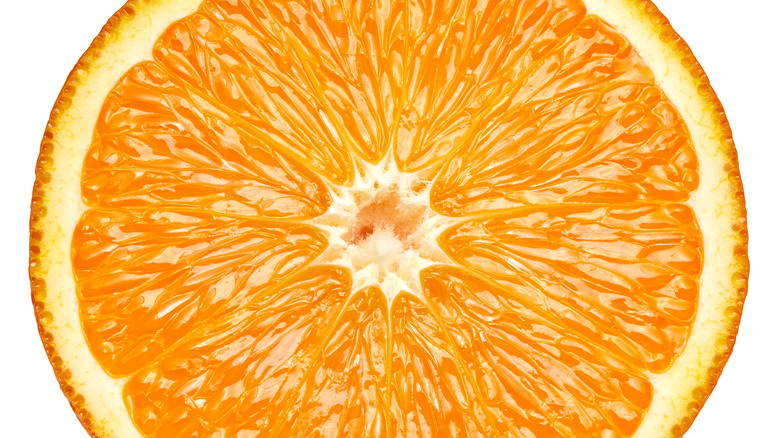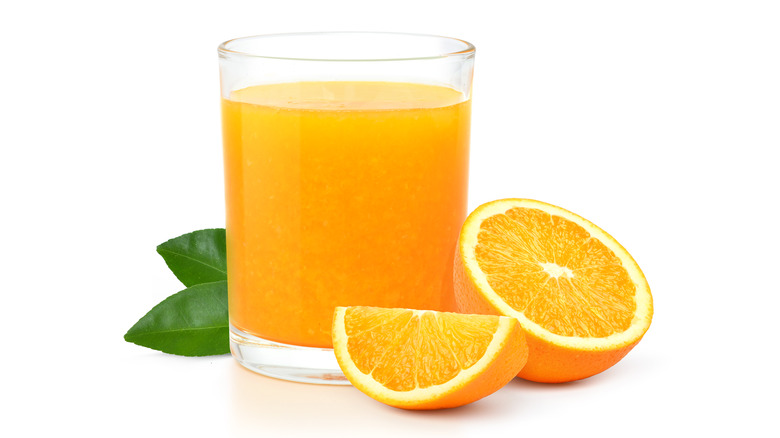The Health Benefits Of Oranges Explained
There are very few foods that are as satisfying as an orange. They are a quick snack that's sweet and invigorating and bursting with citrus flavor. And as it turns out, they are as popular as they are satisfying. The USDA reports that after apples, oranges are the second most popular fruit consumed in the U.S. It's a good thing this in-demand fruit is packed with nutrition. According to Healthline, one large orange is made up of 87 percent water, has 47 calories, 9.4 grams of sugar, 11.8 grams of carbohydrates, and 2.4 grams of fiber.
As WebMD states, there are many different types of oranges, such as navel, mandarin, and Valencia, that can range from sweet to bitter tasting. No matter which type your palette prefers, all of them contain 100 percent of the recommended daily value of vitamin C. That vitamin is a generous aid to your overall health and helps protect from cell damage, boosts the immune system, fights off cancer-causing free radicals, and helps the body produce collagen. In addition to helping your physical state, the vitamin C found in oranges also contributes to a healthy mental state as well. So next time you are feeling stressed, try snacking on an orange, because that huge dose of vitamin C can help lower your blood pressure and the stress hormone cortisol.
Orange juice is not a nutritious as the whole fruit
In addition to the all-around fantastic benefits of Vitamin C, oranges also contain a hefty dose of the lesser known but also brilliant nutrient folate. WebMD shares that folate is a B vitamin used to help divide cells and create DNA. This is especially essential to your body if you are pregnant or are trying to conceive.
We've discussed oranges as a whole, but oftentimes, orange juice may be the more popular orange variation found in your household. Yes, you can avoid the sticky fingers, and the juice of an orange is nutritious, but there are some nutrients that have been well, juiced out, during the juicing process. According to the Times of India, one cup of pure orange juice has the same amount of natural sugar as two whole oranges. But it is unfortunately lower in fiber content. We need fiber to help us prevent constipation and feel fuller longer.
It is also important to be aware of any added sugar in orange juice (and in all of the other juice beverages). You can find bottles of pure orange juice, but the brands with added sugar are likely dominating the refrigerated shelves at your supermarket. So don't be swayed by clever "healthy looking" marketing on the label. Check for any additives on the back before assuming the orange juice you are buying is in fact the healthiest juice form of one of our favorite fruits.


